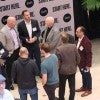
Business leaders, strategists and technologists from the energy industry attended the first International Workshop on AI-Powered Renewable Energy April 17-18 at the Ion innovation hub.

Business leaders, strategists and technologists from the energy industry attended the first International Workshop on AI-Powered Renewable Energy April 17-18 at the Ion innovation hub.
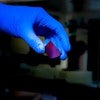
Strong ultralight material could aid energy storage, carbon capture
Rice U. materials scientists and collaborators at the University of Maryland showed that fine-tuning interlayer interactions in a class of 2D polymers can determine the materials’ loss or retention of desirable mechanical properties in multilayer or bulk form.

Ocean warming intensifies viral outbreaks within corals
A groundbreaking three-year study has found evidence that ocean warming can trigger outbreaks of viruses that attack the symbiotic algae inside corals.
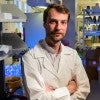
James Chappell wins NSF CAREER Award
Rice bioscientist James Chappell has won a National Science Foundation CAREER Award to develop RNA programming methods that can improve human health and the environment.
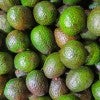
Protein-based coating could keep fruits and vegetables fresh longer
Rice University materials scientist Muhammad Rahman has won a National Science Foundation grant to develop a sustainable, low-cost coating to extend the shelf life of fruits and vegetables.

Rice joins neutrino megaproject. Engineering launches energy transition initiative. McHugh lands cancer research grant. Keck Foundation funds quantum research. West named Cottrell Scholar.
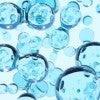
Texas in position to lead hydrogen energy economy, new report says
Texas’ legacy energy economy and geology are ideal for developing a robust hydrogen market, which will play an important role in sustainability, but a successful energy transition also requires a shift in policy and market structure, according to a new report from Rice University’s Baker Institute for Public Policy.
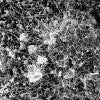
Potential for profits gives Rice lab’s plastic waste project promise
Rice University scientists create carbon nanotubes and other hybrid nanomaterials out of plastic waste using an energy-efficient, low-cost, low-emissions process that could also be profitable.
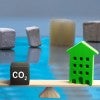
Engineered wood grows stronger while trapping carbon dioxide
Rice University scientists have figured out a way to engineer wood to trap carbon dioxide through a potentially scalable, energy-efficient process that also makes the material stronger for use in construction.

STAT’s Hopkins co-authors National Academies report. CAREER Awards keep coming. DOE funds NEWT desalination research.

Researchers can ‘see’ crystals perform their dance moves
Rice University researchers already knew the atoms in perovskites react favorably to light. Now they’ve seen precisely how the atoms move when the 2D materials are excited with light. Their study this week in Nature Physics details the first direct measurement of structural dynamics under light-induced excitation in 2D perovskites.
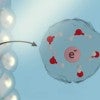
Nanoparticles make it easier to turn light into solvated electrons
Chemists from Rice, UT Austin and Stanford have uncovered the long-sought mechanism of a light-driven process that creates solvated electrons, inherently clean chemical reactants that are attractive for green chemistry.
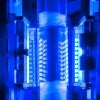
Rice lab’s catalyst could be key for hydrogen economy
A light-activated catalyst efficiently converts ammonia into clean-burning hydrogen using only inexpensive raw materials.
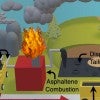
Rice turns asphaltene into graphene for composites
The flash Joule heating process developed at Rice turns asphaltenes, a byproduct of crude oil production, into graphene for use in composite materials.
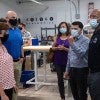
Rice U. technology startup Syzygy Plasmonics raises $76 million in latest funding round
Syzygy Plasmonics, a Houston-based startup fueled by technology developed at Rice University, has announced $76 million in Series C financing led by Carbon Direct Capital — one of the largest rounds of funding for a venture spun out of a Rice lab.